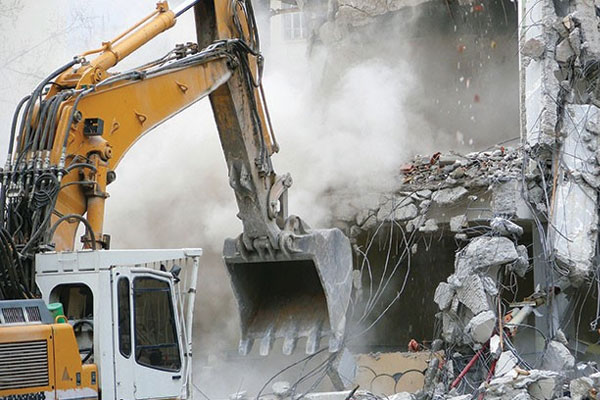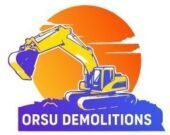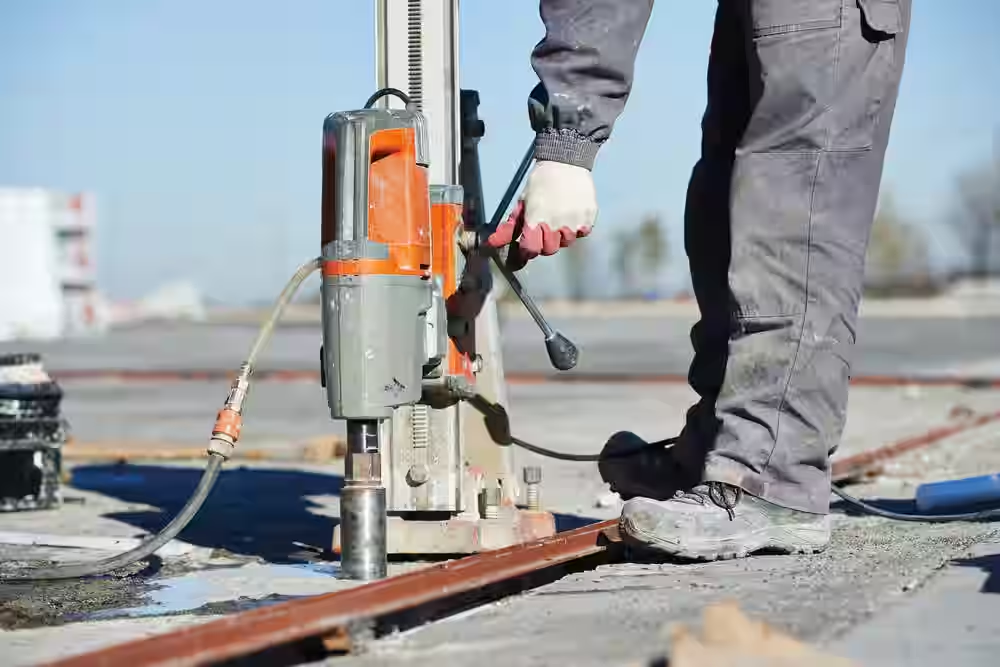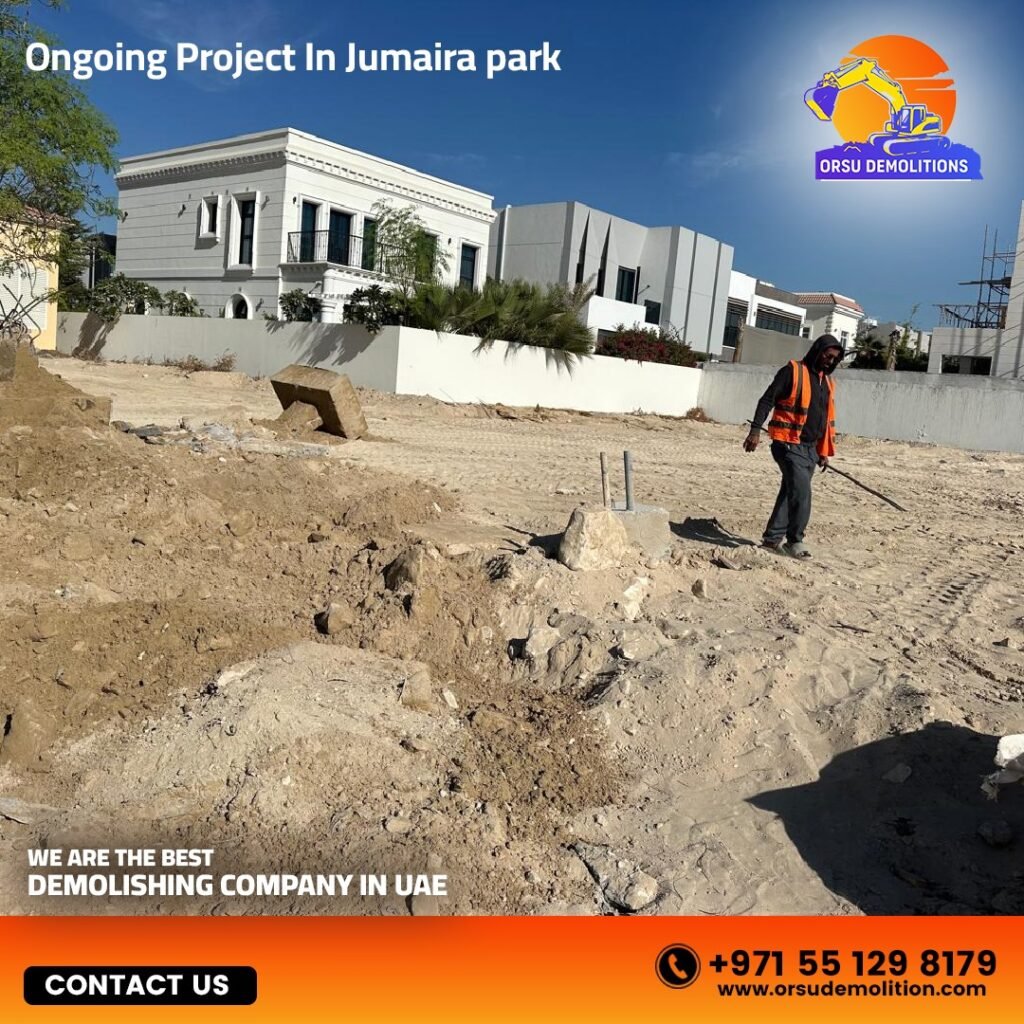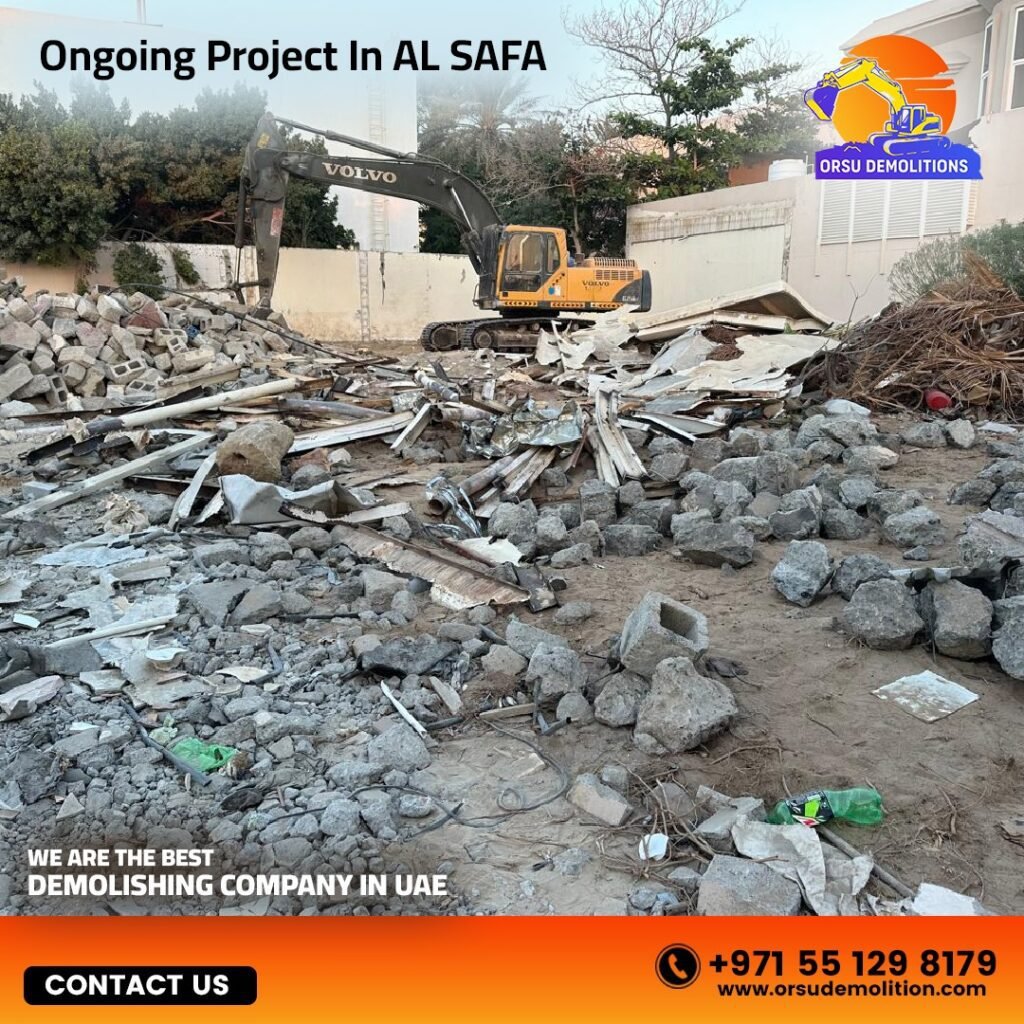Are you in need of reliable , professional and best demolition contractors in Dubai ? Look no further than Orsu Demolition. As a trusted provider of demolition services, we offer top-quality expertise and comprehensive solutions to meet all your demolition needs. With our experienced team of contractors and a track record of successful projects, we are the go-to choice for demolition contractors in Dubai.
When it comes to demolition projects, it is crucial to work with experienced and skilled contractors who can handle the complexities involved. At Orsu Demlition, we pride ourselves on having a team of highly trained professionals with extensive knowledge and expertise in demolition techniques and practices. Our contractors have a deep understanding of local regulations and adhere to the highest safety standards throughout every project.
As leading and best demolition contractors in Dubai, we offer a wide range of demolition services tailored to meet your specific requirements. Whether you need interior demolition, commercial demolition, or residential demolition, we have the capabilities and resources to deliver exceptional results. We utilize state-of-the-art equipment and advanced techniques to ensure efficient and precise demolition processes.
Choosing us as your best demolition contractors in Dubai means benefiting from our comprehensive approach. We begin by conducting a thorough assessment of your project, considering factors such as site conditions, structural integrity, and environmental considerations. Based on this assessment, we develop a customized demolition plan that outlines the most effective and safe methods to be employed.
